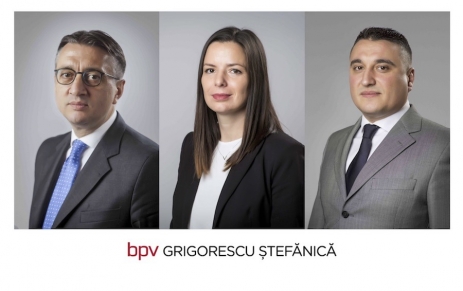*An article by Cezara Constantinescu and Serban Dumitrescu
Preliminary considerations
By Decree no 195/2020 regarding the establishment of the state of emergency on the territory of Romania (the “Decree”), a state of emergency was established for a period of 30 days, starting from the 16th of March 2020, with effect to the entirety of the territory of Romania.
By the Decree, inter alia, measures with direct impact over a multitude of practice areas of the Justice domain were taken. In what follows, we will briefly analyze the measures with direct impact over the civil cases that were pending when the state of emergency was instated or are bound to be registered with the courts following such date.
Our analysis takes into account the civil cases, particularly the cases under the jurisdiction of the High Court of Cassation and Justice (the “HCCJ”), of the Bucharest Court of Appeals (the “CAB”) and the courts under its territorial jurisdiction. Short considerations regarding cases under the jurisdiction of other courts of appeals will be made only with respect to insolvency proceedings. Notwithstanding, on a national level, the courts of appeals established in a generally similar/ uniform manner the cases deemed as urgent.
The cases not deemed as urgent, pending before the courts when the state of emergency was established
The general rule is that the hearing of the civil cases is suspended by operation of law throughout the entire period of the established state of emergency. The suspension comes into effect without any special procedure being required to be fulfilled to this end. The hearing of those cases shall be resumed, ex officio, after the termination of the state of emergency. The courts are obliged to take all the necessary measures to set new hearing dates and to summon the interested parties within 10 days of the termination of the state of emergency.
The new cases not deemed as urgent, that are to be registered with the courts
As regards the cases to be registered with the courts that fall under the CAB’s jurisdiction, they shall be transmitted to the courts exclusively by postal service, express courier services, telefax or by electronic mail.
The new cases shall be registered and receive a case file number, and they shall be randomly assigned to a judge-panel. Nevertheless, the preliminary administrative procedure for such new cases is suspended throughout the state of emergency period. Similarly, the first hearing date shall not be set in such case files until the state of emergency ends.
The cases deemed as urgent, pending before the courts when the state of emergency was instated, or that are bound to be registered with the courts following such date
By way of exception to the general aforementioned rule, the trial of civil cases continues or commences, during the state of emergency, only with regard to those cases deemed of immediate urgency. The cases of immediate urgency are decided upon by the Management Board of the HCCJ regarding the cases under its jurisdiction and by the Management Boards of the Courts of Appeal regarding the cases under their respective jurisdiction.
Nonetheless, even as regards such cases deemed of immediate urgency, the court shall carry out the hearings through video-conference, when possible. The Bucharest Tribunal has already implemented the video-conference system.
Furthermore, the procedural acts shall be communicated by the court by telefax, electronic mail, or by any other means that ensure the transmission and the acknowledgement of receipt of the aforementioned acts.
A novelty aspect regarding the trial of the urgent cases regulated by the civil procedural law is represented by the court’s prerogative to set hearings from one day to another or even in the same day.
Even regarding cases that are deemed of immediate urgency, if the interested party files a request for the postponement of the hearing based on the circumstance that he/she is confined to home isolation, is quarantined or is being hospitalized as a result of the COVID-19 pandemic, the court may postpone the hearing. In the event that the postponement request is denied, the court, either by request or ex officio, shall postpone the ruling so as to allow the interested parties to submit their written conclusions.
The list of cases deemed of immediate urgency that are heard during the state of emergency
In the Annex to this guideline, you will find a table drawn up by us, containing the list of causes deemed of immediate urgency by HCCJ and CAB, which are heard during the state of emergency.
Nevertheless, a court may decide to hear a case that is not expressly included on that list, if the interested party is able to prove the urgency of such-case.
The list of causes deemed of immediate urgency that are being tried during the state of emergency should be available on the courts of law portal (website). De facto, not all courts have communicated the information regarding the cases that are being tried during the state of emergency.
Insolvency proceedings. The particular situation of the debtor’s application for insolvency
As a general rule, the debtors’ applications for insolvency are not heard during the state of emergency period. This conclusion results from Decision no 53/18.03.2020 of the Management Board of CAB, as well as from the more recent Decision no 8/30.03.2020 of the Management Board of the Bucharest Tribunal.
However, at a national level, we identified three exceptions to this general rule. There are three circumscriptions where the tribunals hear the debtors’ applications for insolvency, namely:
» The tribunals under the circumscription of the Court of Appeal of Pitești, namely: The Specialized Tribunal of Argeș, The Tribunal of Vâlcea
» The tribunals under the circumscription of the Court of Appeal of Târgu Mureș, namely: The Specialized Tribunal of Mureș, The Tribunal of Harghita. However, it is specified that these courts shall hear debtors’ applications for insolvency to the extent that such cases will be deemed of immediate urgency, taking into account the specific circumstances of the case.
» The tribunals under the circumscription of the Court of Appeal of Suceava, namely: The Tribunal of Botoșani, The Tribunal of Suceava.
Reasoning and communication of court rulings
The Superior Council of the Magistracy has decided that throughout the period of the state of emergency “the courts may also communicate the rulings drafted in other cases than those deemed of immediate urgency.” However, it is not specified whether the courts will also draft the rulings in the aforementioned cases, making room for the interpretation that the court will communicate only the rulings that were already drafted when the state of emergency commenced.
In practice, we found that some courts also draft the rulings in the cases that are not deemed of immediate urgency.
The situation is the same as regards the summoning: although, theoretically, summons should be issued only regarding the cases deemed of immediate urgency, in practice the courts also issue a summons in cases that are not heard during the state of emergency. Moreover, the practice is split under this regard, meaning that some judge-panels decide to set hearings ex officio after the 1st of May 2020 and issue a summons for the case files that had hearings set during the duration of the state of emergency, despite the fact that such cases were suspended de jure.
The limitation and the preemption periods. The appeal periods.
The limitation and the preemption periods are suspended, meaning:
» if such periods started running before the establishment of the state of emergency, they are suspended and shall resume running after the termination of the state of emergency:
» if such periods should have begun running after the establishment of the state of emergency, then their course will start as of the termination of the state of emergency period.
Similarly, if the appeal periods regarding the cases not deemed of immediate urgency started running before the establishment of the state of emergency, the elapsed periods are interrupted. As such, new appeal periods of equal duration will start to run as of the termination of the state of emergency period.
If appeals were filed before the establishment of the state of emergency, in the cases not deemed of immediate urgency, such cases shall be forwarded to the competent court after the termination of the state of emergency.
The carrying out of judicial expertise activities
In principle, the carrying out of judicial expertise activities is not suspended. This is due to the fact that, even if a meeting of the parties and the expert would be required/ if the expert would be required to travel, such would be allowed based on an affidavit indicating the professional necessity thereof.
However, in our practice, all the summons for meetings with experts set during the period following the establishment of the state of emergency were cancelled. This is attributed to the fact that experts voluntarily take strict measures in order to prevent the spread of the COVID-19 pandemic, as well as to the fact that the cases in which the expert’s report was requested are, in turn, suspended by order of law during the state of emergency.
The enforcement procedures
As a general rule, the enforcement procedures continue in all cases where the rules regarding sanitary discipline instated through the National Committee’s for Special Situations of Emergency Decisions can be respected.
For example, for an enforcement procedure regarding a sum of money owed by the debtor, there are theoretically, no impediments as long as all forced enforcement acts can be fulfilled and communicated through electronic means (notices of garnishment, communications, distribution of the sums obtained through the enforcement procedure etc.)
ANNEX to the guideline »











